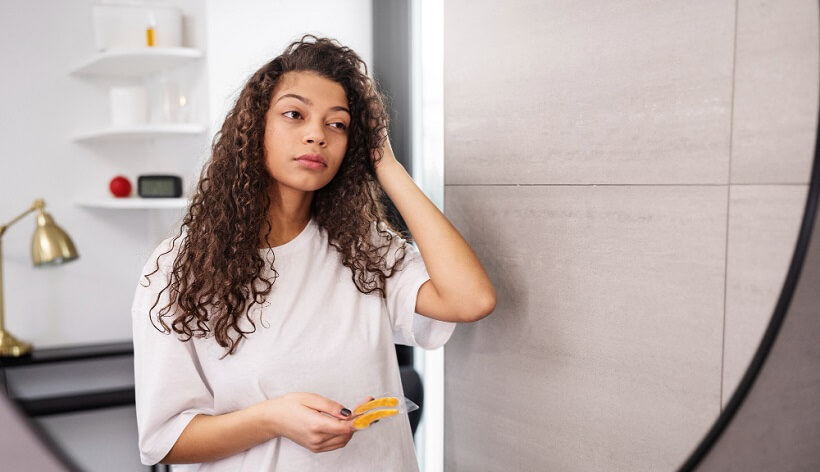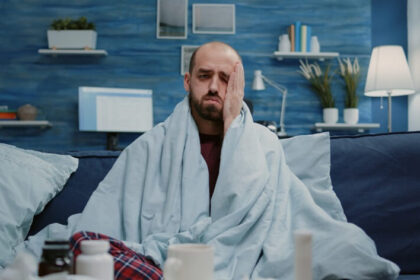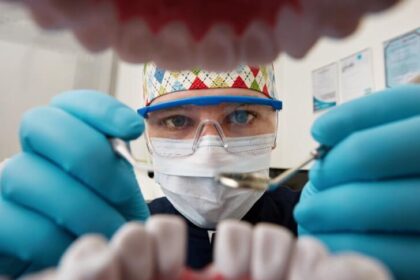Your entire body will alter during pregnancy due to hormonal changes that affect your body’s appearance and experiences. It may sound counterintuitive at first, but your feelings and experiences will grow more brittle as your body gets stronger and more prepared to welcome the baby into the world. Hair loss is a side consequence of your hormones rising along with that. Post-pregnancy brittleness and hair loss are frequent. Therefore, there’s no need to freak out; all you have to do is pay attention to our practical advice, and you’ll soon regain control.
Allow the body to function how it pleases
The hormone levels of progesterone, estrogen, prolactin, and oxytocin will spike during pregnancy. Your body will start to release less prolactin and less other hormones once your kid is born. The rate at which you lose hair during pregnancy can vary due to elevated estrogen levels. It will probably go from a few strands in the shower every day to one or two times a week. You will therefore likely notice that all of the hair that was still on your head throughout pregnancy will come out in clumps once your baby is born and the levels return to what they were before getting pregnant. You don’t need to be concerned. All you have to do is relax, take pleasure in your time with your baby, and allow the body to restore your hormone levels to normal.
Don’t use hair straighteners
Excessive use of hair stylers is one of the causes of hair loss in people. All hair straighteners and curling irons, unless they have built-in heat protection, can harm your hair. Nevertheless, if you have a newborn or your hair is falling out quickly, try to avoid using hair stylers. Continue washing your hair as usual, use only shampoo, apply a mask or nourishing conditioner, and, if you can, let it air dry. If you would rather have luxurious strands than straight hair, utilize Velcro rollers and stick to au naturel hair care methods as many hair dryers might harm your hair.
Use extensions to increase volume
You can always employ some of the more recent hair extension treatments to add volume and texture to your hair if you’re used to having long, luscious hair. Purchasing premium tape hair extensions can prove to be an excellent decision for your hair. Do you desire a natural look that requires little effort and provides quick length and volume? You only need tape hair extensions to have beautiful, naturally-looking locks right away. It takes six to eight weeks to apply this semi-permanent hair extension technique before you need to alter them. For new mothers who don’t have the time to consider going to the salon once a week, it’s the ideal option.
Avoid stress
One of the biggest threats to your health is stress. That also applies to hair loss. Not to mention the detrimental effects post-partum stress can have on your breastfeeding and your baby’s mood. Infants sense their mother’s emotions and will pick up on signs of stress. Thus, attempt to avoid stress for the benefit of your hair, your infant, and yourself. Steer clear of stressful situations and limit your social circle to those that uplift and cheer you up. When the baby is asleep, try some yoga or meditation to help you rediscover your core and block out the negativity around you.
Don’t panic; everything is normal
When you saw a clump of hair in your hand while taking a shower, did you nearly scream? There are others besides you. Don’t panic, though; it’s common to experience faster hair loss after giving birth. Up until your infant turns four months old, you should anticipate losing that much hair. You’ll see a minor decrease in the baby’s hair loss as they grow and approach six months of age. You should resume your typical hair loss from before your pregnancy by the time your little one is nine months old. See a dermatologist if your child’s significant hair loss persists beyond their first birthday.
Concluding remarks
It’s common to lose hair both during and after pregnancy. You may experience it, as do most mothers. Because of this, you shouldn’t become alarmed; instead, if you follow the advice we’ve provided, you’ll see that your hair is growing and shining as brilliantly as it did before having a child.





